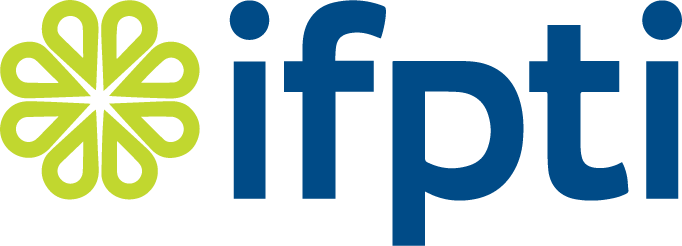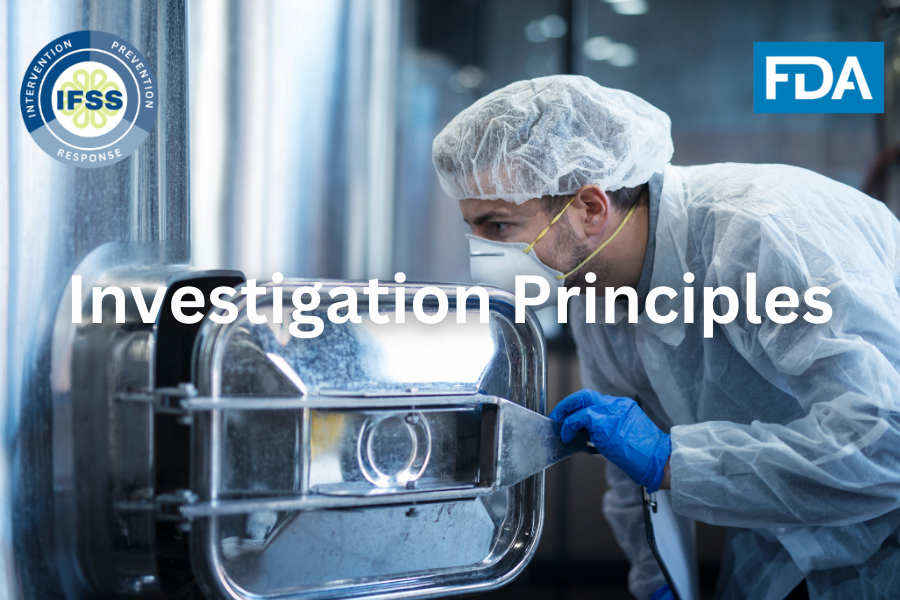IFSS Food Protection Professional NCS
Basic Core
Investigation Principles
Description: Introductory knowledge, skills, and abilities related to conducting an investigation of a feed or food safety-related event.
Topic Areas:
-
Description: Base knowledge of investigation principles related to feed and food programs.
Terminal Competency:
Explain the fundamentals of investigations.
Enabling Competencies:
1. Define relevant terminology.
2. Explain the significance of high-profile investigations.
3. Explain the difference between an inspection and an investigation.
4. Describe control measures used to mitigate risk to the public.
5. Give examples of different types of investigations.
6. Provide an example of when you would conduct an emergency response investigation.
7. Describe the reasons for an investigation.
To see a set of behavioral anchors, which provide further detail about the enabling competencies and can be used for assessment against the enabling competencies, contact IFPTI.
-
Description: Policies on agency communication information sharing and messaging to the public.
Terminal Competency: Describe the fundamentals of communication during an investigation.
Enabling Competencies:
1. Explain the role of agency communication in an investigation.
2. Explain the agency policy for releasing information to the public.
To see a set of behavioral anchors, which provide further detail about the enabling competencies and can be used for assessment against the enabling competencies, contact IFPTI.
-
Description: Cooperation among agencies that may be involved in investigations.
Terminal Competency: Describe how agencies coordinate efforts during investigations.
Enabling Competencies:
1. Give examples of agencies that may potentially be involved.
2. Describe a basic ICS structure for feed/food investigations or incidents.
To see a set of behavioral anchors, which provide further detail about the enabling competencies and can be used for assessment against the enabling competencies, contact IFPTI.
-
Description: The knowledge and skills needed to collect and document information to draw conclusions.
Terminal Competency:
Describe the fundamentals of conducting an investigation.
Enabling Competencies:
1. Describe critical thinking in an investigation.
2. Describe the role of communication in an investigation.
3. Differentiate between observation and intuition.
4. Recognize non-verbal communication.
5. Apply effective interview techniques.
6. Write defensible reports.
7. Describe the systematic approach to investigations.
8. Determine if an investigation is needed.
9. Describe the organizational tools used to systematically approach an investigation.
10. Explain the use of the scientific method during investigations.
11. Describe a risk-based approach to investigations.
12. Give examples of risk factors to consider in an investigation.
To see a set of behavioral anchors, which provide further detail about the enabling competencies and can be used for assessment against the enabling competencies, contact IFPTI.
-
Description: Preparations needed for an investigation.
Terminal Competency:
Explain the preparation for an investigation.
Enabling Competencies:
1. Research information on commodity.
2. Review documentation on the incident/outbreak leading up to the investigation.
3. List the equipment needed during an investigation.
4. Describe safety precautions.
5. Describe common logistical challenges.
To see a set of behavioral anchors, which provide further detail about the enabling competencies and can be used for assessment against the enabling competencies, contact IFPTI.
-
Description: Components of an investigation.
Terminal Competency:
Describe investigation activities.
Enabling Competencies:
1. List types of information that can be collected for use as evidence.
2. Describe agency policy for the collection of evidence.
3. Describe agency policy for the documentation of evidence.
4. Explain the responsibilities of the investigation team.
5. Conduct interviews.
6. Use investigation technologies when conducting an investigation.
To see a set of behavioral anchors, which provide further detail about the enabling competencies and can be used for assessment against the enabling competencies, contact IFPTI.
-
Description: Steps taken after an investigation.
Terminal Competency:
Explain the importance of post response activities
Enabling Competencies:
1. Tabulate findings.
2. Describe the chronology of the investigation.
3. Describe contributing factors important to prevention.
4. Explain after action reports.
5. Discuss findings with other agencies.
6. Explain enforcement measures that can be applied.
To see a set of behavioral anchors, which provide further detail about the enabling competencies and can be used for assessment against the enabling competencies, contact IFPTI.
Learning Resources:
Assessments:
Coming soon

